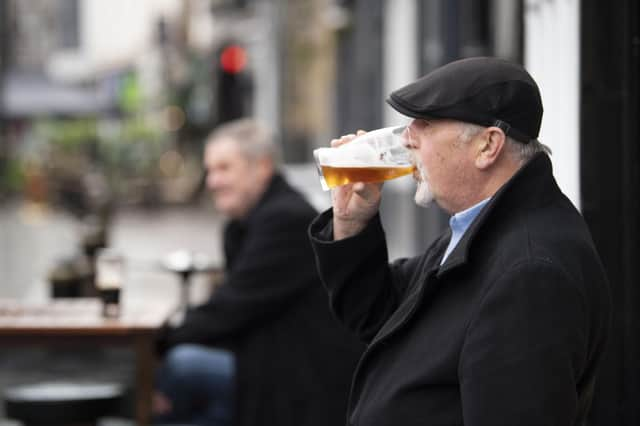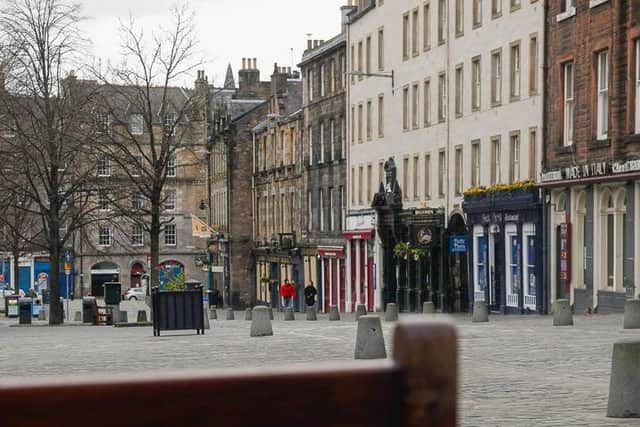Scots pubs and restaurants 'cannot survive' ongoing restrictions


The package was dismissed as "being abandoned at sea with only a lifejacket" by the Scottish Hospitality Group, which wants to see lockdown measures eased.
The group was among a number of bodies which this week launched a legal battle against the Scottish government's restrictions on the hospitality industry.


Advertisement
Hide AdAdvertisement
Hide AdMinisters have unveiled a new support package for firms which are forced to close under the new five-tier system of restrictions published today.
This includes grants every four weeks for as long as the restrictions last. Based on rateable values, awards will be for either £2,000 or £3,000.
Businesses which can remain open, but are directly constrained by the measures, will be eligible for grants worth £1,400 or £2,100, again based on rateable value.
But Stephen Montgomery, spokesman for the Scottish Hospitality Group, said: “The new financial support package, while welcome, is the equivalent of being abandoned at sea with only a lifejacket. We cannot survive if the intention is to impose these restrictions indefinitely. "
He added: "The Scottish Government’s current approach is impacting on people’s lives and livelihoods with devastating consequences. They need to sit down and work with businesses before it is too late and save an industry that is the third biggest employer in the country.
"More levels are just another example of an unnecessarily complex system that leaves both businesses and the public confused."
The need for clarity was echoed by Dr Liz Cameron, chief executive of the Scottish Chambers of Commerce.
She said: “We cannot stress enough how essential it is that businesses have as much clarity on restrictions on trading as is possible, so we welcome this new strategic framework which gives businesses an opportunity to begin re-opening the economy. The Scottish government must continue publishing evidence-led data alongside restrictions."
Advertisement
Hide AdAdvertisement
Hide AdTracy Black, CBI Scotland director, called for greater consultation with businesses from ministers.
"With firms under significant pressure already, they want guarantees that changes in tier status are communicated clearly, in good time and involve genuine consultation with business," she said.
"The Scottish government must show its workings and evidence base, including outlining trigger points, for new restrictions – particularly any proposals to move areas into tier four.
“No more pubs, cafés or shops should be forced to close at short notice or manufacturers asked to down tools with essential orders unfulfilled.
"At all levels, support must be made available from the moment any restrictions come into force, have a clear point of contact and be commensurate with their impact. Anything less and even more businesses crucial to our recovery will go to the wall, with further job losses inevitable.”
The Scottish Retail Consortium (SRC) said closing non-essential shops in level four - the highest tier – could be the end for many stores.
"We believe any move to close non-essential retailers will have only a very minimal impact on reducing the spread of the virus, whilst carrying very significant economic harms,” said SRC director David Lonsdale.
"Any attempt to close non-essential stores during the golden Christmas shopping quarter may mean many are unable to reopen, having missed out on this vital trading period.”